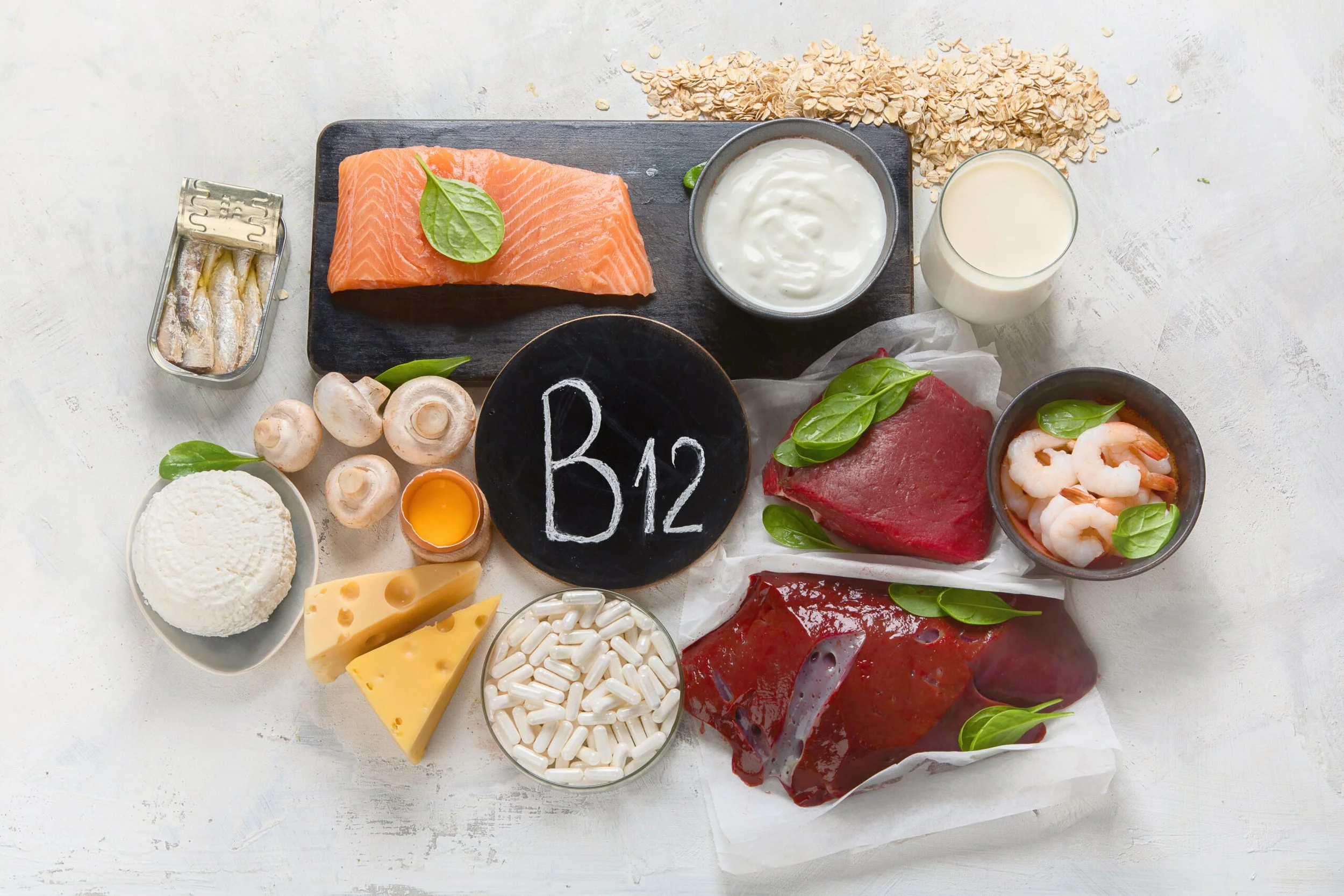Vitamin B12
The days are getting shorter as we step on towards Winter. Unsurprisingly, many people struggle with symptoms like fatigue and mild depression in the winter, yet few realise that the reason for their problems might be vitamin deficiency.
In a series of blogs I am going to look at the most common vitamin deficiencies and which foods and supplements to consume to counteract these deficiencies.
B vitamins
The term "B vitamins" describes a complex of several closely related water-soluble vitamins that are responsible for numerous vital metabolic functions. Among other things, they are indispensable for energy production, normal functioning of the nervous system and regeneration of muscles and skin.
Most vitamin B’s are readily available in foods, but vitamin B12 is not available from plants. For this reason vegetarians and vegans who eat little or no animal products should monitor their vitamin B levels and take a supplement if required.
If you have vitamin B12 deficiency, you could become anemic. A mild deficiency may cause no symptoms. But if untreated, it may lead to symptoms such as:
Weakness, tiredness, or lightheadedness
Heart palpitations and shortness of breath
Pale skin
A smooth tongue
Constipation, diarrhea, loss of appetite, or gas
Nerve problems like numbness or tingling, muscle weakness, and problems walking
Vision loss
Mental problems like depression, memory loss, or behavioural changes
Food sources of vitamin B12
Vitamin B12 is naturally present in foods of animal origin, including fish, meat, poultry, eggs, and dairy products. In addition, fortified breakfast cereals and fortified nutritional yeasts are readily available sources of vitamin B12 that have high bioavailability.
Bioavailability means the amount of the vitamin in your blood that is active and can be used to maintain nerve health and other functions.
The estimated bioavailability of vitamin B12 from food varies because absorption decreases drastically when the capacit of the carrier to absorb and use vitamin B12 (intrinsic factor) is exceeded.
Some people lack intrinsic factor and have a codititon called Pernicious anaemia. This can run in family is often associated witht low thtyroid levels( hypothyroidism), type 2 diabetes and coeliac disease.
Bioavailability also varies by type of food source. For example, the bioavailability of vitamin B12 appears to be about three times higher in dairy products than in meat, fish, and poultry, and the bioavailability of vitamin B12 from dietary supplements is about 50% higher than that from food sources.
B12 is found in:
a variety of vegetables; fruits; grains (at least half whole grains); fat-free and low-fat milk, yogurt, and cheese; and oils.
Milk and milk products are good sources of vitamin B12.
Many ready-to-eat breakfast cereals are fortified with vitamin B12.
a variety of protein foods such as lean meats; poultry; eggs; seafood; beans, peas, and lentils; nuts and seeds; and soy products.
Fish and red meat are excellent sources of vitamin B12.
Poultry and eggs also contain vitamin B12.
How to manage your vitamin B12 intake if you are a vegetarian.
Vegans who consume no animal products and vegetarians who consume some animal products (e.g., dairy products, eggs, or both) but not meat have a higher risk of developing vitamin B12 deficiency because natural food sources of vitamin B12 are limited to animal foods. Consumption of foods fortified with vitamin B12 (such as fortified nutritional yeasts) as well as vitamin B12 supplements can substantially reduce the risk of deficiency.
Although we can thrive on a plant based diet (don’t worry) many vegans take vitamin B12 supplementation, but B12 can be found in many fortified foods as well.
Nutritional yeast flakes or NOOCH as it’s sometimes referred to is a great addition to any meal. This can be sprinkled on so much food. It gives a nutty flavour to food and is in many different vegan recipes.
Marmite is a British food that is most commonly used as a spread on bread or stirred into soups. It is a nutritional yeast spread that is quite pungent in flavour. It is very much an acquired taste, you either love it or hate, there is no in between. It has a tonne of health properties and contains high amounts of B12 in just one serving.
Another source of vitamin B12 is dietary supplements. Since it's difficult for people to get enough vitamin B12 from food alone, we should consider taking a daily supplement containing during the autumn and winter.
Check out the Vitalis Health shop online at https://vitalishealth.co.uk/health-shop-vitalis/ or in person at our Howard Street clinic to purchase a range of vitamin supplements.
If you are concerned you might be deficient in Vitamin B12 then why not book a private blood test at Vitalis Health?
Our health clinician Tina is highly experienced ittaking blood and resuls are back withtin 1-2 days.
You will receive your results via secure confidential email.
The doctor with follow up and email you directly to analyse results if there is anything of concern.
If you require Vitamin B12 injections we can provide these if your level is low or low side of normal witht symptoms related to this.
If your vitamin B12 level is low you do need to follow up with a specialist in this field. We recommend you are assessed by one of our Gp’s first and then we can make the referral for you into the NHS of privately.
Before B 12 injections can be given we need to know your folic acid or folate level. This must be well witthin normal range before you can star injections.





